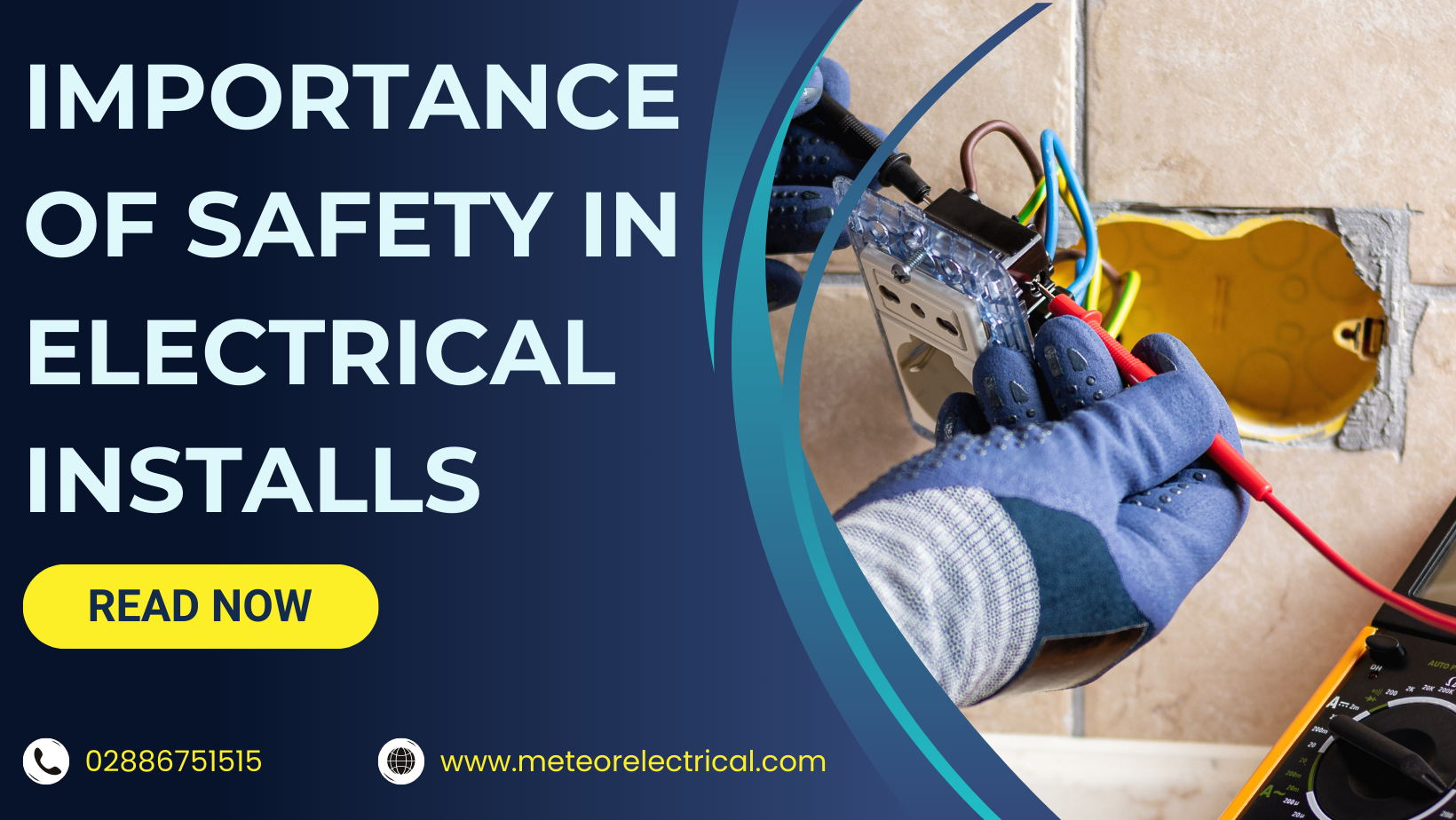The Importance of Safety In Electrical Installations
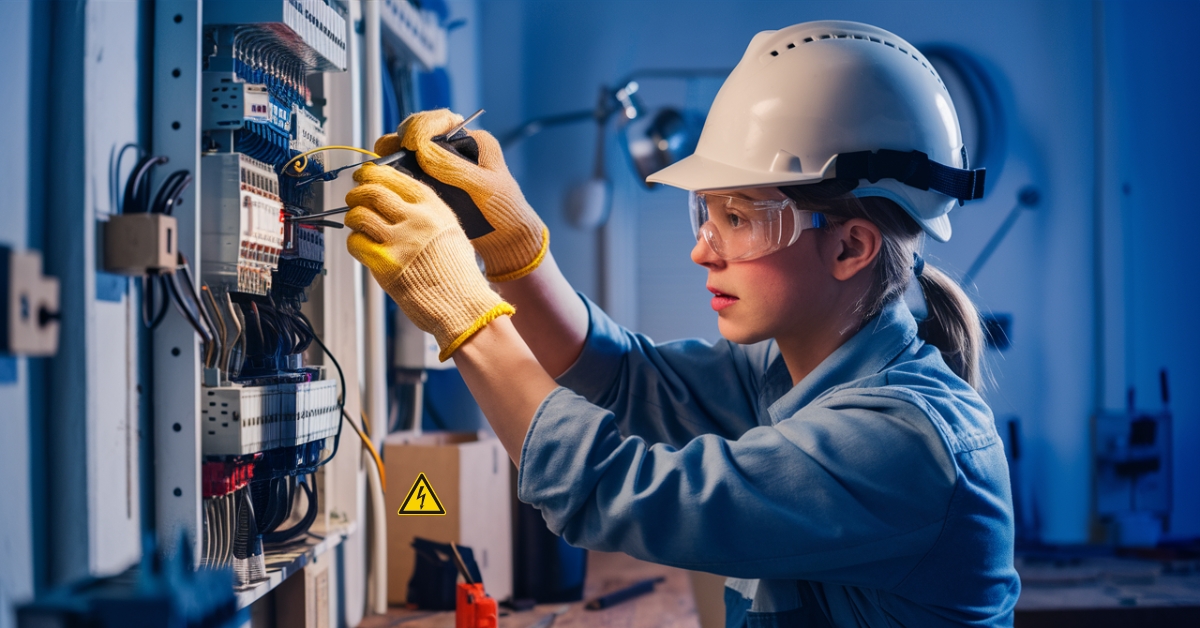
Electrical installations are the backbone of modern living, powering everything from our home appliances to the complex machinery in industrial settings. Yet, despite our reliance on electricity, safety often takes a back seat. Shockingly, electrical faults are responsible for over 20,000 fires in the UK each year, accounting for nearly half of all accidental house fires. Furthermore, workplace electrical injuries lead to an average of 30 fatalities annually in the United States alone, with countless more non-fatal incidents reported by the Occupational Safety and Health Administration.
These statistics highlight the critical need for stringent safety measures in electrical installations. Whether you're an electrician or simply a homeowner, understanding and implementing electrical safety is essential not just for preventing accidents but also for ensuring the longevity and efficiency of your electrical systems.
In this article, we’ll explore the importance of electrical safety and provide practical tips to help you maintain a safe and reliable electrical environment.
What Is Electrical Safety?
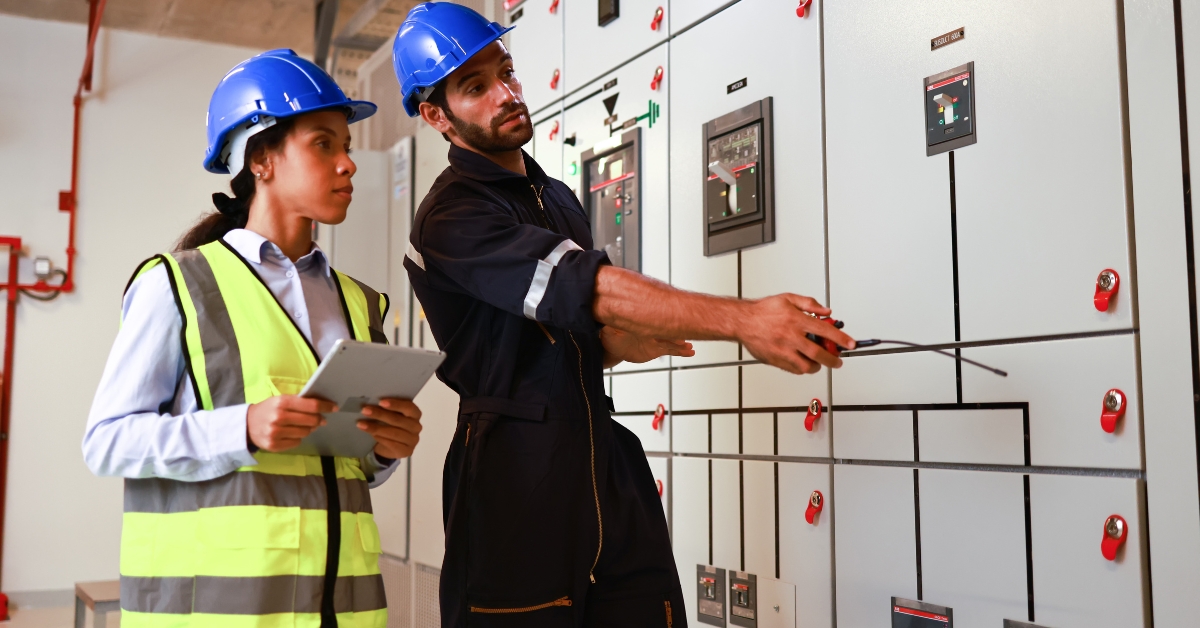
Electrical safety is all about handling electrical wiring and equipment in a way that minimises risk. While electricians and professionals deal with this daily, it’s just as crucial for everyone to understand the basics. The National Fire Protection Association offers comprehensive guidelines and resources to help individuals and professionals understand these principles.
In today’s tech-driven world, we're constantly interacting with electronic devices, so staying safe and vigilant is key. Following electrical safety guidelines can be the difference between a normal day and a potentially fatal accident. It’s about knowing what to do, how to do it, and why it matters.
Credit: Electrocution Lawyers
Reduce Risk While Working Efficiently
Even though electronics are part of our daily lives, the risk is significantly higher for those working directly with dangerous electrical systems. Electricians and trained professionals are usually well-equipped to handle these hazards—they can identify potential dangers and take quick action to keep things safe.
However, for those lacking experience or training, the stakes are much higher. A misstep could lead to electrocution or worse. If you manage a warehouse or work in an industrial setting, it's imperative to ensure that both you and your employees are familiar with electrical safety standards. Regular training and clear, consistent guidelines are essential to maintaining a safe work environment.
How To Spot Signs of Electrical Danger?
Electricity is silent and invisible, which makes it a unique hazard. Since you can’t see, smell, or hear it, you need specific systems in place to manage the risks. Among the various issues, two common electrical hazards stand out:
- Electric Shock
- Arc Flash
Both of these can cause serious harm, not just to your systems but also to anyone nearby. They can also trigger other dangers, such as electrical fires, which can spiral out of control quickly. The best way to protect yourself is by understanding these hazards, knowing how they’re caused, and taking proactive steps to prevent them.
Why Is Electrical Safety So Important?
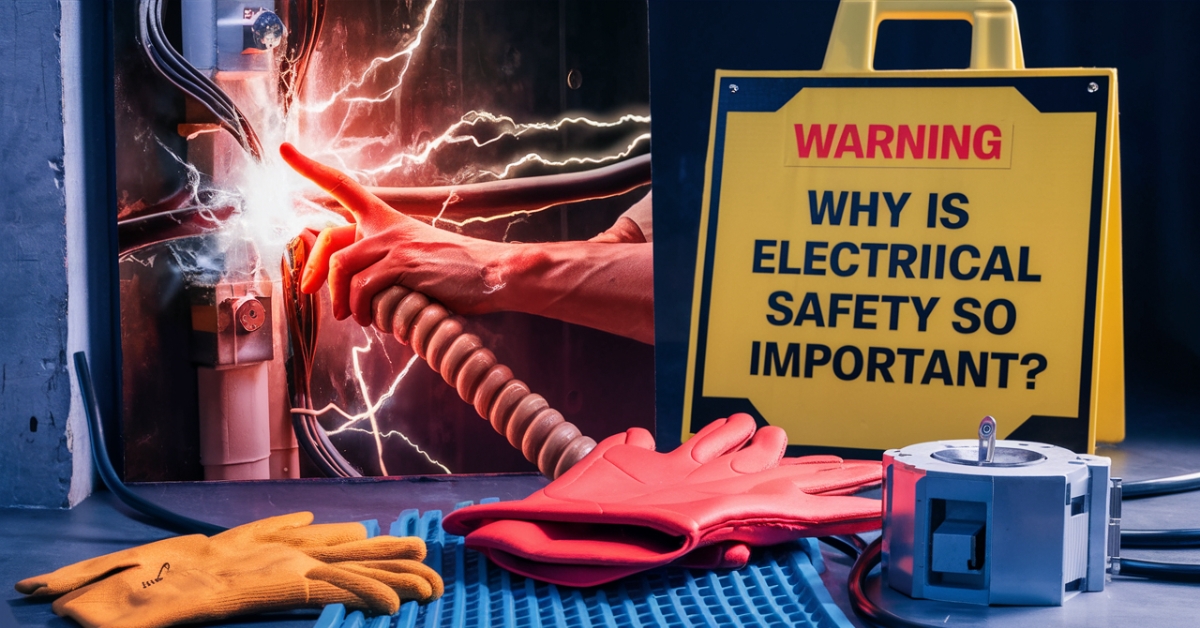
Electrical safety isn’t just a checklist—it’s a critical practise because electricity is powerful and potentially dangerous. Improper handling can lead to injuries or even death.
If you're an electrician, following safety procedures is a must. And if you're employing electricians, providing them with the right training is equally important. Proper training ensures that your employees can handle electrical issues safely, which not only protects them but also saves you from injury-related costs down the road.
Following electrical safety guidelines offers several benefits beyond just safety. These measures help ensure that the electrical system itself remains in good working condition for longer. Let's explore how adhering to safety protocols can benefit you.
Maintain Safety
The primary benefit of following safety guidelines is, of course, safety. Electrical systems, while convenient, can be extremely dangerous if mishandled.
Taking safety measures significantly reduces the risk of electrocution, fires, and other hazards. Plus, by protecting your equipment from damage, you extend its lifespan, saving yourself from costly replacements or repairs in the future.
Cost-Effectiveness
One of the biggest perks of prioritising safety is cost-effectiveness. Electrical fires, system failures, and appliance outages can be expensive. However, by adhering to proper protocols, you can prevent most major issues, reducing the need for costly replacements.
Better Efficiency
Electrical safety guidelines aren’t just about avoiding danger—they also help you get the most out of your appliances. By taking care of your devices and systems, you ensure they operate efficiently and last longer.
Routine maintenance keeps your electrical system running smoothly, preventing unexpected failures and hazardous situations. Plus, efficient appliances consume less energy, making your experience both safer and more economical.
How To Keep Your Electrical System Safe?
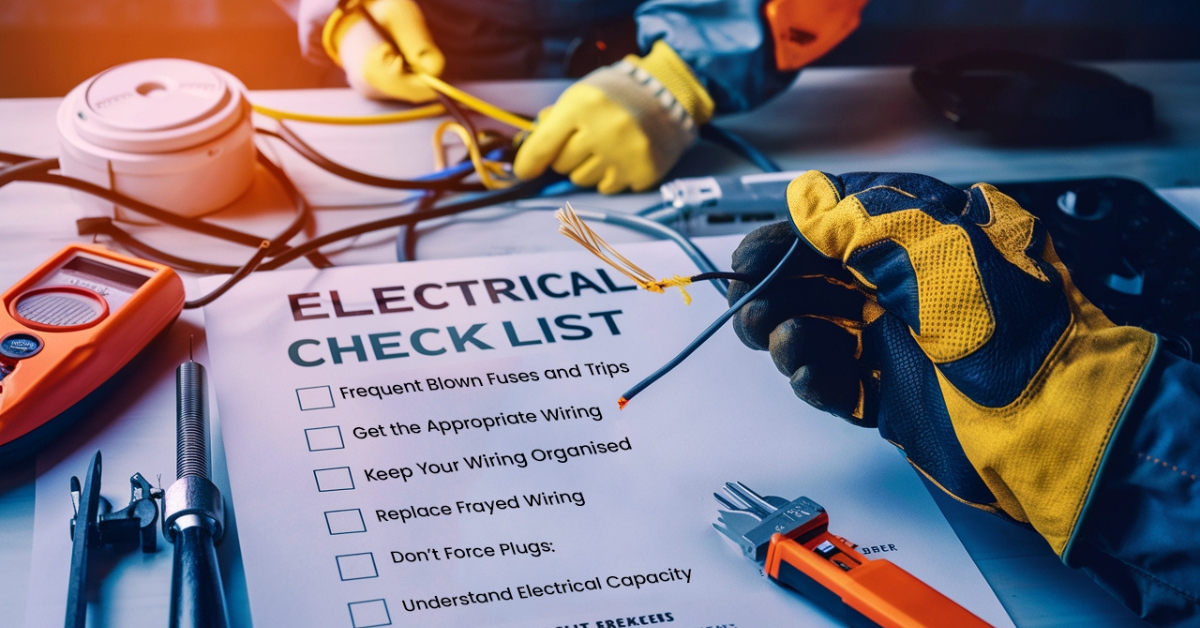
Aside from following safety guidelines, regular maintenance is key to keeping everything running smoothly. Here are some essential tips for maintaining your electrical system:
- Frequent Blown Fuses and Trips: If you constantly experience blown fuses and trips, it’s a sign that something’s wrong with your electrical system. Ignoring these issues could lead to costly damage, so it’s best to consult a qualified professional as soon as possible.
- Get the Appropriate Wiring: Never use indoor electrical cables and equipment outdoors. Outdoor environments are harsh, and indoor wiring isn’t designed to withstand them. Using the wrong equipment can lead to serious hazards.
- Keep Your Wiring Organised: Avoid bending cables around furniture or hiding them under carpets. Not only can this create a tripping hazard, but it can also lead to an electrical fire. Always keep your wiring visible and neatly organised.
- Replace Frayed Wiring: If you notice any frayed wiring in your electrical system or appliances, replace it entirely rather than trying to make repairs. Frayed wires are a significant fire risk, and replacing them is the safest option.
- Don’t Force Plugs: If a plug doesn’t fit into a socket, don’t force it. Forcing a plug can damage the socket and the device. Always use plugs that are appropriate for your sockets.
- Upgrade Your Sockets: If your sockets are outdated or loose, it’s time for an upgrade. Sticking with old systems past their lifespan can damage your electrical system and pose a safety risk.
- Never Overload Systems: Overloading is a major cause of electrical problems. Make sure you understand the power capacity of your sockets and avoid plugging high-voltage appliances into low-voltage sockets
- Understand Electrical Capacity: Different electrical systems have different capacities, often depending on their age. Older systems typically have lower capacities, which might not be sufficient for modern appliances. If you live in an older home, consider upgrading your system to prevent damage.
How To Maintain Electrical Safety At Home?
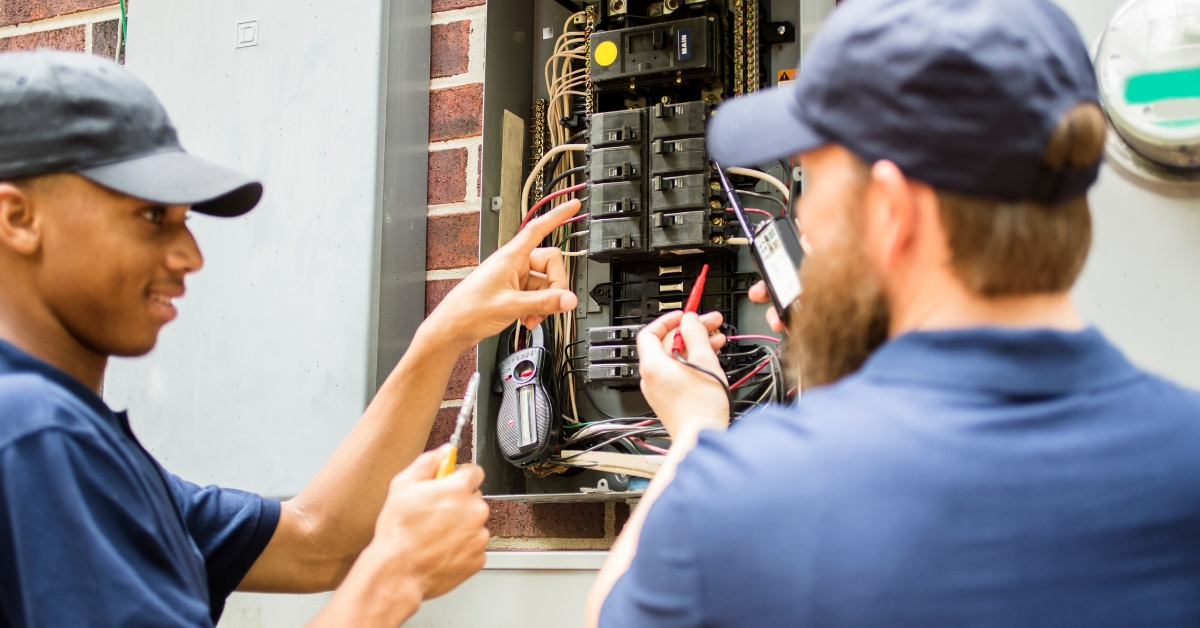
As a homeowner, you don’t need to be an expert to keep your electrical system in check. While you might not know all the technical aspects, there are plenty of simple yet effective ways to keep your electronics in good shape and maintain safety. Let’s explore some practical electrical safety tips that can make a big difference.
| Electrical Safety Tip | Description | Benefit |
|---|---|---|
| Follow Appliance Instructions | Always read and follow the manual provided with your appliances. | Ensures safe usage and prolongs the life of the appliance. |
| Check for Overloading | Regularly inspect sockets and devices for signs of overheating or overloading. | Prevents potential electrical fires and system failures. |
| Repair or Replace Damaged Cords | Replace frayed or damaged electrical cords instead of trying to repair them. | Reduces the risk of electrical fires and further damage. |
| Unplug Unused Devices | Unplug devices when they’re not in use to prevent overheating and power surges. | Saves energy and protects your appliances from damage. |
| Use the Correct Wattage | Ensure light fixtures and appliances use the correct wattage to avoid overload. | Prevents overheating and increases energy efficiency. |
Credit: Eaton
Always Follow Appliance Instructions
One of the easiest ways to ensure electrical safety is by following the instructions that come with your appliances. It might seem tedious, but those manuals are packed with valuable information that can help you use your devices safely and efficiently. So, next time you unwrap a new gadget, take a moment to read through the provided manual—it could save you a lot of trouble down the road.
Look For Signs of Overloading
Overloading your circuits can lead to serious damage to your electrical system, so it’s important to stay vigilant. Always check your sockets and devices to see if they’re cool to the touch and in proper working condition. If you notice any signs of overheating, it’s time to take action. Consider adding protective faceplates to your outlets for an extra layer of safety.
Repair Or Replace Damaged Electrical Cords
Damaged power cables are more than just a nuisance—they’re a serious electrical safety risk. Regularly inspect your power cords and extension cables for any signs of cracking or fraying. And remember, stapling or running wires under the carpet is a big no-no, as it can damage the insulation. If you find yourself relying on too many extension cables, it might be time to add more outlets. Don’t hesitate to call a professional electrician to install additional sockets; it’s a small investment for a safer home.
Unplug Unused Devices
It’s easy to overlook, but one of the simplest electrical safety tips is unplugging devices when they’re not in use. Not only does this protect your appliances from overheating and power surges, but it also helps cut down on energy consumption by eliminating phantom drain. If you’re worried about forgetting to unplug, consider investing in smart plugs. At Meteor Electrical, we offer a range of high-quality smart plugs that make it easy to manage your devices and save energy.
Give Appliances Space
Proper air circulation is key to preventing your devices from overheating. Make sure your appliances have enough space to breathe—this is especially important for electric and gas devices. To avoid any potential hazards, keep these appliances at least a foot away from the wall. And always store flammable items away from your electronics to minimise risk.
Keep Exhaust Fans Clean
Exhaust fans are essential for keeping certain appliances cool, but they can quickly become clogged with debris. When this happens, the device has to work harder, which not only reduces its lifespan but can also lead to an electrical fire. Regularly cleaning your exhaust fans can prevent this buildup and keep your appliances running smoothly. Plus, clean fans help avoid the buildup of dangerous gases, making your home safer overall.
Practice Caution With Heaters
Portable heaters and fireplaces can be a great source of warmth, but they also come with their own set of risks. Keep flammable and combustible items well away from these heat sources, and make sure your portable heater is placed on a stable, even surface to prevent tipping. It’s also a good idea to be cautious with your water heaters. Setting them too high not only increases energy consumption but also raises the risk of burns and scalding, especially for children. Always use your heaters with care.
Only Use The Correct Wattage
Using the right wattage for your fixtures, lamps, and appliances is crucial for both electrical safety and efficiency. If a light fixture doesn’t list a specific wattage, opt for 60-watt bulbs or less. For unmarked ceiling luminaires, stick with 25-watt bulbs. Want a safer, more energy-efficient option? Go for LED light bulbs. At Meteor Electrical, we carry the innovative Kosnic range of LEDs, which provide excellent energy savings and reduce the risk of overheating.
Stay Safe With The Right Products
When it comes to electrical safety, using the right products can make all the difference. At Meteor Electrical, we offer a wide range of quality products designed to keep you safe and comfortable. From smart sockets and switches to energy-efficient light bulbs, we’ve got everything you need to upgrade your home’s electrical system. Visit Meteor Electrical today to replace any outdated appliances with our top-of-the-line products, and enjoy peace of mind knowing you’re protected.
Conclusion
Maintaining electrical safety at home doesn't have to be complicated. By following these simple electrical safety tips—like unplugging unused devices, keeping your appliances well-ventilated, and using the correct wattage—you can protect your home from potential hazards and ensure your electrical systems run efficiently.
For all your electrical installations and maintenance needs, trust Meteor Electrical. With a wide range of high-quality products, from smart sockets to energy-efficient LED bulbs, we’re here to help you create a safer, more efficient home. Visit Meteor Electrical today and discover how our innovative solutions can make a difference in your daily life. Your safety is our priority, and following electrical safety guidelines is the first step towards a secure and reliable home environment.
FAQs
1. What are the most common signs of an overloaded electrical system?
Answer: Common signs include frequently blown fuses, tripped circuit breakers, warm or discoloured wall plates, and dimming lights. If you notice these, it’s time to check your electrical load.
2. How often should I inspect my home’s electrical system for safety?
Answer: It’s recommended that you inspect your electrical system at least once a year. For older homes, more frequent inspections may be necessary to ensure safety.
3. Can I repair frayed electrical cords myself?
Answer: It’s safer to replace frayed cords entirely rather than attempting repairs. DIY fixes can lead to further damage or even electrical fires.
4. Is it necessary to unplug devices when not in use?
Answer: Yes, unplugging devices reduces the risk of overheating, protects against power surges, and saves energy by eliminating phantom power drain.
5. What wattage should I use for light fixtures in my home?
Answer: For fixtures with no wattage listed, use 60-watt bulbs or less. For ceiling luminaires without a specified wattage, stick to 25-watt bulbs. LEDs are a safer, energy-efficient option.

